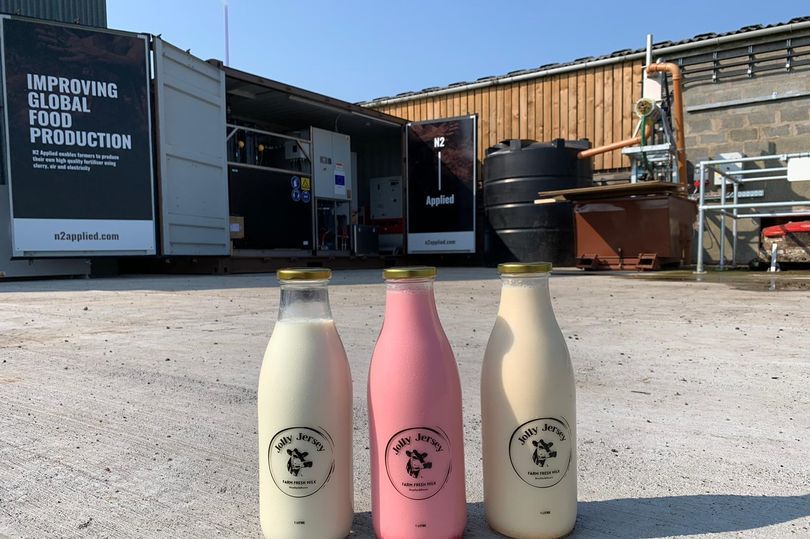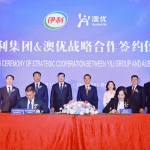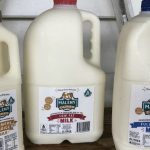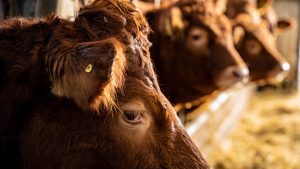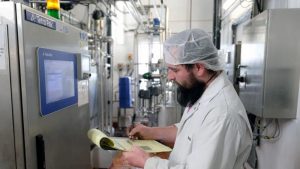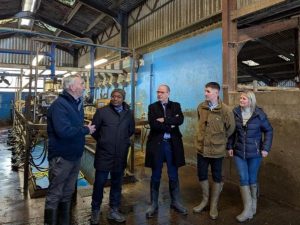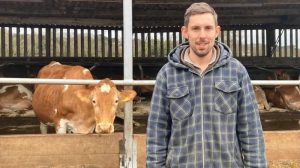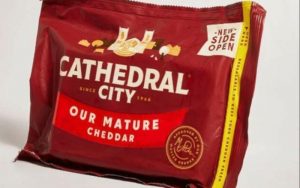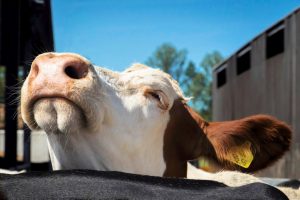
A pioneering eco-farm that sells dairy products in vending machines is piloting breakthrough technology in a bid to become net zero.
Nether Lethame Farm in Strathaven was set up in lockdown by Alex Fleming and his wife MaryAnn who have begun a two-year European Union-funded pilot that uses N2 Applied’s technology to process all manure from their Jersey cow herd into sustainable fertiliser to monitor how methane and ammonia emissions are eliminated.
The farm even uses a robot to pick up excess manure from cow sheds for conversion to “green fertiliser”.
Using a scientific technique that applies just air and electricity to slurry, the N2 Unit performs a plasma conversion that “locks in” methane and ammonia to the liquid waste material, producing a sustainable fertiliser.
As well as the project’s potential to achieve net zero emissions from slurry management and improve grassland yields, the farm is a growing business attracting daily customers – so the ability to eliminate slurry odours is seen as an attractive fringe benefit.
The pilot is the latest by N2 Applied into the practicalities of operating this innovative technology within a commercial farm setting. It will generate valuable information on what is needed in order to enable more farmers to implement this technology to support the sustainability of their businesses, against growing pressures on managing agricultural carbon footprints, and in particular suppressing methane emissions.
Alex said: “We are a highly unusual farm in that we’re a start-up, so have had a clearer path to becoming fully sustainable from the outset.
“Since we took ownership at the end of 2018, we’ve grown a business that is the master of its own destiny in selling directly to the public via vending machines and a cafe, and we have had to adapt and accelerate our plans due to the impact of lockdowns.
“The potential to make slurry management, which is such an environmental Achilles’ heel for the dairy sector, net zero can be a cornerstone of our sustainable farming business. We want to explore how best to achieve net zero emissions and make green technology the backbone of our growing business.”
As well as assessing the practicalities, treated slurry from the farm is being used for scientific crop trials that will assess how the treated material can help reduce the need for chemical fertiliser, and therefore further reduce greenhouse gas emissions.
The farm currently has a small herd of 19 Jersey cows alongside around 300 chickens, producing milk, ice cream, milkshakes and eggs that are sold daily, there are further plans to both expand the herd and introduce new products such as yogurt.
Carl Hansson, CEO of N2 Applied said: “Technology that can cut methane and ammonia emissions to practically zero has profound implications for the UK’s dairy food sector and farms of many sizes.
“If N2 Units were adopted across the UK dairy herd today they could deliver 17 to 21 per cent of the National Farmers’ Union (NFU) efficiency and greenhouse gas emission reduction target.
“The Nether Lethame pilot is a shining example of commercial vision and ambition combining with science to pursue net zero goals and support a whole new consumer delivery model.”
